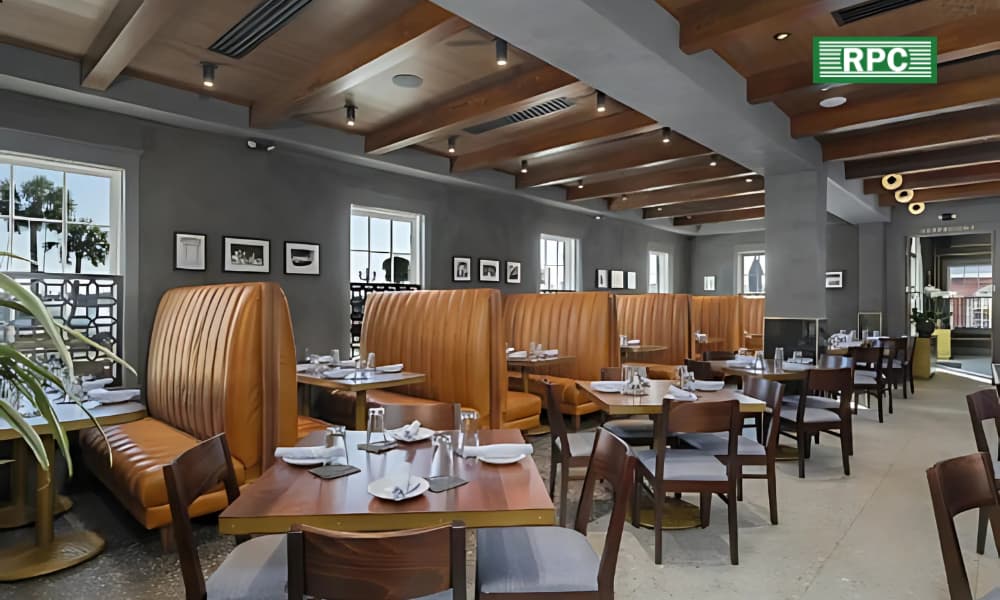How Often Do Restaurants Get Inspected?

Restaurant health inspections don’t have to be scary. Here’s how to prepare…and pass with confidence.
Key Takeaways:
- Restaurant inspection frequency varies according to a restaurant’s risk level and its location within the U.S.
- Restaurant health inspections have been impacted in some locations by staffing and budget constraints.
- Proactive preparation enhances a restaurant’s readiness to comply with food health and safety regulations.
Opening a successful restaurant is only the first step. Maintaining that success is the most important, and a large part of that crucial maintenance is regularly passing restaurant health inspections.
Restaurant health inspections are a vital part of food safety in the Sunshine State and across America, helping to protect restaurant customers against illness by ensuring standards of sanitation and best practices are met.
This is especially important when it comes to supporting Florida’s economy, where 48,516 restaurants serve locals and visitors every day, helping to generate over $100 billion annually.
While restaurant health inspections occur every year, there’s no set schedule. Their frequency varies according to the establishment’s compliance history, its unique risk level, and its location.
Here, we’ll illustrate how restaurant owners, managers, and foodservice professionals can understand how often restaurants get expected as well as what you can do to prepare more effectively.
Restaurant Health Inspection Frequency Variables
How often do restaurants get inspected? You’ll get different answers depending on several factors. Let’s start with location.
In Philadelphia, for example, inspections usually take place once a year. In Florida, the Department of Business and Professional Regulation (DBPR) requires two annual inspections.
Inspections are carried out by the Environmental Health section of the County Health Department and fall under one of three categories:
- Routine (which are unannounced and unscheduled).
- Re-inspections (scheduled follow-ups to ensure corrective compliance).
- Inspections generated due to a complaint (also unannounced and unscheduled).
Inspections will be conducted more frequently for high-risk establishments, being performed quarterly under Section 381.0072, Florida Statutes. Examples of high-risk locations are healthcare settings, bars and lounges, and public or private schools.
Impact of Staffing and Budget Constraints
Inspections and reinspections are only as regular as a city’s food health budget and employee count allow.
In New York City, for instance, there’s an ongoing shortage of restaurant inspectors, which has resulted in some establishments waiting over a year for reinspection.
Worse, the Big Apple’s food standards have been seriously slipping in the absence of efficient assessment. The public has been deceived in more than one instance by restaurants posting out-of-date assessment grades unrepresentative of their current low grading.
This isn’t merely a New York City problem: April 1 of this year saw 10,000 jobs lost at the Department of Health and Human Services, a figure that roughly doubled as around 10,000 more people retired, and around 10,000 resigned, raising fears about the FDA’s ability to enforce food safety standards.
The dramatic shortage of both people and funds means it has become harder than ever for cities and states to stay on top of inspections and gradings. It remains to be seen how this might affect Florida’s restaurants and the standard of food they serve.
All of this places greater responsibility on every restaurant stakeholder and staff member to uphold proper hygiene and safety standards.
How a Well-Designed Restaurant Helps
Clutter. Dim lighting. Storage that’s hard to reach. Poor ventilation.
You’ll find these in too many restaurant kitchens. They’re all culprits when it comes to substandard hygiene and safety, and they’re all avoidable when you construct your restaurant correctly.
Whether you’re building new or making renovations, you can keep customers and staff safe by maximizing sanitary conditions and optimizing your restaurant for efficient workflow.
Every restaurant should be built with safety regulations and code compliance in mind, including but not limited to the following:
- Meeting OSHA standards.
- Creating designated stations for cooking, food preparation, and plating.
- Optimizing storage space.
Designing safe and compliant restaurants also takes a thorough understanding of your local area’s regulations and permitting requirements.
Proactive Preparation Enhances Compliance
You don’t have to work in dread of restaurant inspections. Conducting regular self-inspections and staying updated on local health codes can help restaurants maintain readiness for unannounced inspections.
Confidently handling restaurant health inspections starts with knowing what health inspectors will look for, which includes:
- Properly stored and labeled food with nightly cold storage inspections.
- Certain foods being stored at a safe temperature for the necessary time.
- Staff who’ve been trained and certified in allergen awareness and food safety.
- High standards of personal hygiene in all restaurant staff.
- Thorough and efficient kitchen sanitation.
But there’s no need to feel overwhelmed: All it takes is addressing common-sense issues, one step at a time.
Start by using the National Restaurant Association’s self-inspection checklist as a template toward healthier, more compliant premises.
It’s also best practice to stay informed on Florida’s food safety and sanitation requirements, as regulations can be updated at any time.
The main thing is to be proactive and not assume your restaurant is doing everything right. Don’t hesitate to contact your local health department if you need further information.
Ramp Up Your Restaurant’s Compliance with RPC
“How often do restaurants get inspected?” is no longer a question your restaurant needs to be worried about, especially when you put all our tips into practice.
You’ll also be ahead of the curve when you work with a construction company that has comprehensive knowledge of restaurant construction to help you avoid common health and safety pitfalls.
RPC General Contractors has the insight and experience you need to build or renovate with restaurant health inspections in mind. We’d love to discuss it with you, so don’t hesitate to get in touch!